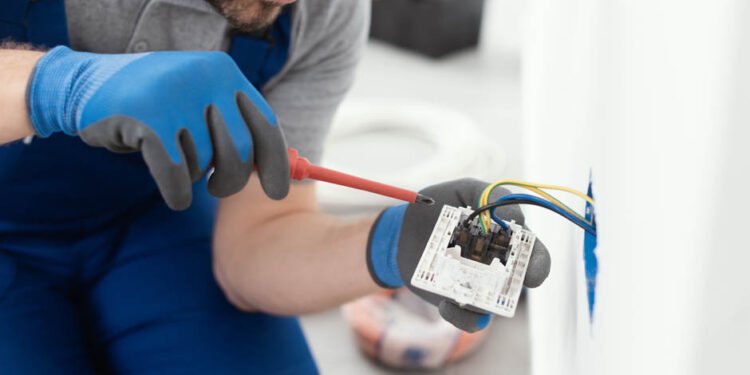Electrical installations are crucial in modern society, powering homes, businesses, and industries. Proper electrical installations are essential for safety, efficiency, and functionality, from lighting systems to complex machinery. If you want to learn more about electrical installations, then check this out. We will delve into the importance of professional electrical installations, covering key aspects such as safety standards, energy efficiency, and maintenance.
Safety Standards in Electrical Installations
Adhering to safety standards is paramount in electrical installations. National and international codes outline guidelines for safe electrical practices. These standards cover wire sizing, grounding, circuit protection, and equipment installation to prevent electrical hazards such as fires, shocks, and short circuits.
Proper Wire Sizing and Circuit Design
One critical aspect of electrical installations is ensuring proper wire sizing and circuit design. Oversized or undersized wires can lead to overheating, voltage drops, and inefficiencies. Professional electricians calculate the appropriate wire gauge based on the load requirements and length of the circuit to optimize performance and safety. Additionally, well-designed circuits prevent overloading and ensure balanced electrical distribution.
Efficiency and Energy Conservation
Efficiency is another critical consideration in electrical installations. Energy-efficient components such as LED lighting, smart thermostats, and energy-saving appliances reduce electricity bills and contribute to environmental sustainability. Properly installed electrical systems minimize energy wastage through optimized wiring, insulation, and efficient devices, promoting a greener and more cost-effective approach to power consumption.
Electrical Maintenance and Inspections
Regular maintenance and inspections are vital for the longevity and safety of electrical installations. Periodic checks by qualified electricians help identify potential issues like loose connections, worn-out components, or insulation degradation. Timely repairs and upgrades prevent accidents, equipment failures, and costly downtime, ensuring uninterrupted power supply and operational reliability.
Integration of Renewable Energy Sources
With the growing emphasis on renewable energy, modern electrical installations often integrate solar panels, wind turbines, or other renewable sources. Proper integration requires system design, wiring, and compatibility expertise to harness renewable energy effectively. By incorporating renewables, electrical systems reduce reliance on fossil fuels, cut carbon emissions, and contribute to sustainable energy practices.
Advanced Technologies in Electrical Installations
Advancements in technology have revolutionized electrical installations, introducing intelligent systems, automation, and digital controls. Smart meters, energy monitoring devices, and home automation platforms enable users to monitor and manage electricity usage efficiently. These technologies enhance convenience, optimize energy utilization, and offer insights for further energy-saving strategies.
Challenges and Solutions in Electrical Installations
Despite advancements, electrical installations face challenges such as aging infrastructure, rapid technological changes, and evolving regulatory requirements. Solutions include upgrading outdated systems, adopting future-proof technologies, and staying updated with industry standards. Collaboration between stakeholders, including electricians, manufacturers, and policymakers, is crucial for addressing these challenges effectively.
Fire Safety Measures
Fire safety is one of the most critical aspects of electrical installations. Improperly installed electrical systems are a leading cause of residential and commercial fires. Overloaded circuits, faulty wiring, and inadequate insulation can lead to electrical sparks and overheating, increasing the risk of fire outbreaks. Professional electricians ensure fire safety by following code-compliant installation practices, using fire-resistant materials, and implementing circuit protection devices such as circuit breakers and ground fault circuit interrupters (GFCIs). These measures significantly reduce the likelihood of electrical fires and protect property and lives.
Compliance with Building Codes and Regulations
Building codes and regulations govern the design, installation, and maintenance of electrical systems in residential, commercial, and industrial buildings. Compliance with these codes is crucial for obtaining permits, passing inspections, and ensuring occupant safety. Professional electricians are well-versed in local building codes and national standards, ensuring that electrical installations meet all requirements. Non-compliance can result in legal consequences, insurance issues, and safety hazards, emphasizing the importance of engaging qualified professionals for electrical work.
Integration of Safety Features and Emergency Systems
Modern electrical installations often include safety features and emergency systems to enhance protection during unforeseen events. These features may include smoke detectors, carbon monoxide detectors, emergency lighting, and backup power systems like generators or uninterruptible power supplies (UPS). Proper installation and integration of these safety measures are essential for the timely detection of hazards, swift response during emergencies, and continuity of critical operations. Electricians trained in safety protocols and emergency procedures ensure that these systems function effectively, providing peace of mind to occupants and stakeholders.
The significance of professional electrical installations cannot be overstated. Safety standards, wire sizing, energy efficiency, maintenance practices, integration of renewables, technological advancements, fire safety measures, compliance with codes, and incorporation of safety features are all vital aspects of electrical installations. By prioritizing quality artistry, adherence to standards, and proactive safety measures, we create environments that are powered reliably and safeguard lives, property, and the environment against electrical hazards. Investing in professional electrical installations is an investment in safety, efficiency, and resilience for the present and the future.












